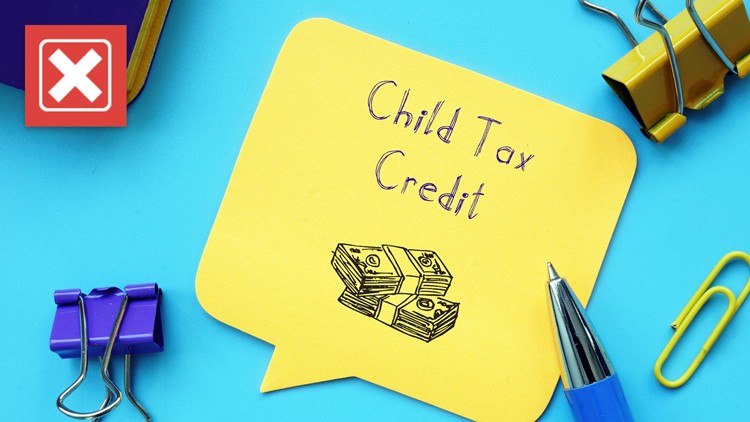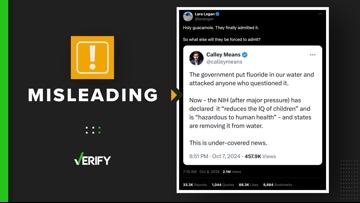The Advance Child Tax Credit included in the American Rescue Plan, which was signed into law by President Joe Biden on March 11, “provides the largest Child Tax Credit ever and historic relief to the most working families ever,” by increasing the Child Tax Credit from $2,000 per child to $3,600 per child for children under the age of 6, and from $2,000 per child to $3,000 per child for children ages 6 to 17 years old, according to the White House.
On its website, the Internal Revenue Service (IRS) says starting July 15, the agency will pay half the total credit amount in advance monthly payments. Those with children can claim the other half when they file their 2021 income tax return. Now, VERIFY viewer Nichole W. wants to know how the Advance Child Tax Credit will affect divorced parents who alternate years claiming dependent children on their taxes and what happens if one of the parents declines the prepayments from the IRS, but the other parent does not.
THE QUESTION
Is there currently guidance for divorced parents claiming the Advance Child Tax Credit?
THE SOURCES
THE ANSWER
No, there is not currently guidance for divorced parents claiming the Advance Child Tax Credit.
WHAT WE FOUND
An IRS spokesperson told VERIFY by email that the agency currently does not have guidance for divorced or separated parents in relation to the Advance Child Tax Credit, however, they did share a comprehensive list of frequently asked questions, including information that addresses reconciliation, as well as IRS Publication 504, which is a detailed publication on divorce and separation for taxes in general.
Erica D. York, an economist for the Tax Foundation, says while there currently is no guidance from the IRS or the Treasury Department on how the Advance Tax Credit will be distributed to divorced or separated parents, the IRS will most likely use the most recent tax return on file to determine who qualifies for the advance payment.
“Whatever parent claimed a child in 2020 would be the one to get the advance payment now. A dependent can only be claimed on one tax return. So in situations where parents alternate the years that they claim the credit, this could result in a parent receiving the credit two years in a row,” York told VERIFY. “It may be a situation where it's best to opt out of the advance payments, so the parents can just wait to claim the credit on the tax return when they file taxes next year, and not have to deal with the complication of who's going to get the advanced payment and how will that be reconciled next year.”
On the IRS website, there is an option to opt out of Advance Child Tax Credit payments, which can be found at the bottom of the agency’s Child Tax Credit Update Portal. York says Monday, June 28, is the deadline for opting out for the July 15 payment, however, divorced or separated parents will have time to opt out ahead of the next round of monthly payments, if they choose to do so.
“In the case of say, a married household, if just one spouse opts out, the way the IRS website reads is that the other spouse would still get their half of the advance child tax payment. So, both spouses would need to opt out,” said York. “Now, if it's a case of a single parent, and they are the one that had the child on the most recent tax return, and they opt out, I think that's all the IRS would have to go on, and perhaps it would mean the parent who is planning to claim them next year would have to wait until either the IRS opens up a portal that allows you to change your tax information or all the way until tax time.”
According to the White House, if parents choose to opt out of the advance monthly payments, they will receive the full Child Tax Credit as a lump sum next year in 2022 when they file their 2021 tax return.
More from VERIFY: Yes, people who haven’t filed taxes can get this year’s child tax credit
VERIFY
Our journalists work to separate fact from fiction so that you can understand what is true and false online. Please consider subscribing to our daily newsletter, text alerts and our YouTube channel. You can also follow us on Snapchat, Twitter, Instagram or Facebook.













